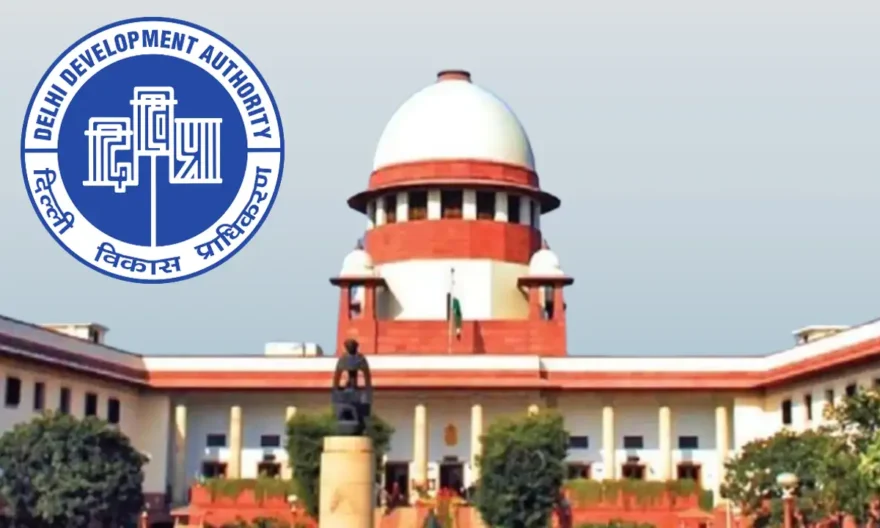
The Supreme Court recently directed the Delhi Development Authority (DDA) to ensure that a pavement adjacent to the Kalindi Kunj Metro Depot is not encroached upon or utilized for unauthorized activities.
A bench of Justice Abhay S Oka and Justice Sanjay Karol, observed that the land had been acquired for a public purpose. However, the pavement adjoining the Metro depot was being utilized by a ‘car clinic’ and other vendors.
The Court expressed strong disapproval of such encroachments, considering that citizens had lost valuable land to facilitate the construction of the depot. The primary purpose of the pavement, as per the Court, should be to provide a walking space for people.
“The compulsory acquisition has been made for a public purpose and therefore, the appellant and all the concerned authorities cannot allow the pavement to be used for any purpose except for allowing people to walk. We hope and trust that either the appellant takes immediate action in this behalf or calls upon the authorities empowered to take action to do the needful immediately in accordance with the law,” the judgment reads.
The Supreme Court passed the order in an appeal filed by the Delhi Development Authority (DDA) against a 2016 judgment of the Delhi High Court in a land acquisition case.
The case involved a landowner seeking compensation under the Right to Fair Compensation and Transparency in Land Acquisition, Rehabilitation and Resettlement Act, 2013 for the acquisition of their land in 2006. The High Court had ruled that the land acquisition under the previous 1894 Act had lapsed due to the authorities’ failure to provide full compensation to the landowner. Consequently, the High Court directed the payment of compensation to the landowner under the 2013 Act, despite the Delhi Metro Rail Corporation Limited (DMRCL) having possession of the land.
The Supreme Court allowed the DDA’s appeal against the High Court’s verdict, highlighting that the 2013 Act does not apply to physical acquisitions that were completed prior to its enactment, based on the Constitution Bench decision in Indore Development Authority. Notably, the apex court granted the DDA’s request to condone the 1231-day delay in filing the appeal, despite acknowledging that it was “casually drafted.” The Court emphasized that the granting of such condonations is determined by the specific facts and circumstances of each case, rather than a rigid formula.
Taking into account the land’s use for public purposes over several years, the Court reasoned that a liberal approach should be adopted when considering the prayer for condoning the delay. The High Court’s order was set aside by the Supreme Court, and the DDA was directed to pay costs amounting to ₹50,000 to the landowner. Additionally, the DDA was directed to pay the original compensation award within one month if it had not already been paid.




